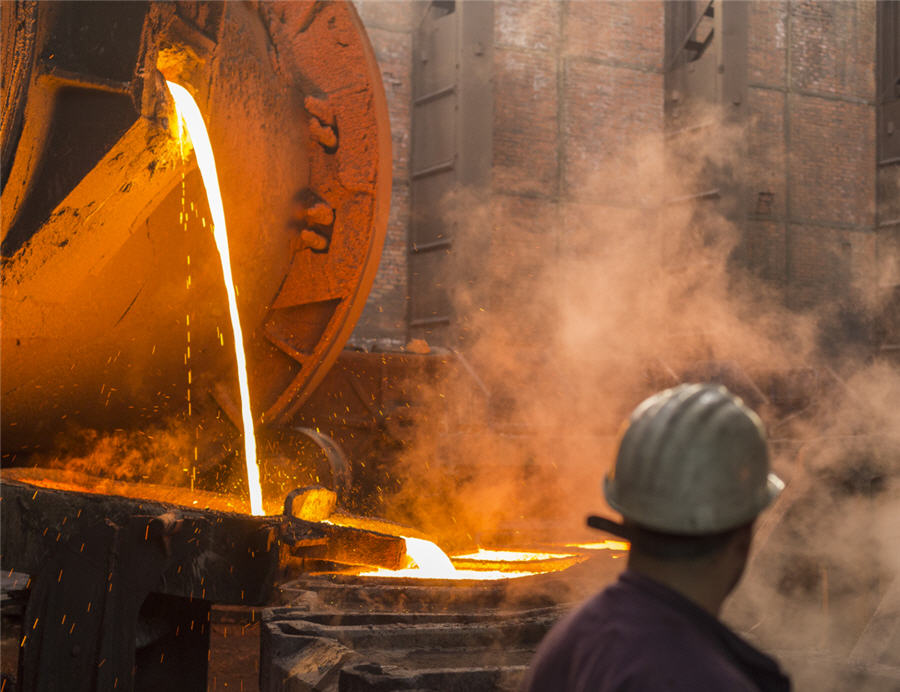China copper smelters plan to cut output after margins fall

Two Chinese copper smelters have laid out plans to reduce production next year as an imbalance between mine supply and smelting capacity continues to drive down processing margins.
At a quarterly meeting of Chinese smelters in Shanghai last week, representatives from Daye Nonferrous Metals Group Holdings Co. and Baotou Huading Copper Industry Development Co. disclosed plans to cut smelting output that converts ore concentrate into blisters or anodes, the intermediate products for making refined copper, according to people familiar with the matter who asked not to be named citing private talks.
While it’s not definite the cuts will happen, they underscore the industry’s struggle with a shortage of feedstocks caused by recent mine production setbacks and continuous expansion of smelting in Asia. That’s been a factor in bullish calls that helped drive copper futures to a record high in May this year.
Representatives of Daye – a major smelter in Hubei province – told peers in last week’s meeting that the company aims to cut smelting output by 20% next year, the people said. Smaller reductions have already been implemented, leading to a decline in total refined copper production at the plant, which has an annual capacity of 930,000 tons, said one of the people.
Baotou Huading, a smaller firm, plans to cut smelting by 40% next year, having already made reductions this year. The company has an annual capacity of 200,000 tons of blister and 30,000 tons of refined copper, according to its website.
The overall impact on refined copper is still unclear, as production from scrap metal may be able to partially fill the gap, and blister supply from overseas is plentiful. But there are already signs of weakness – Chinese refined copper output has been receding from the record levels reached last year, with smelters’ profit margins being squeezed.
However, Chinese refined copper production rose around 4% in June from the previous moth to 1.13 million tons, according to data released Wednesday, after an increase in prices of by-product sulfuric acid mitigated refining losses.
Processing fees known as treatment charges have collapsed to near zero in the spot market. While most smelters still receive the majority of their supply at better annual terms, recent deals indicate that those are also set to drop sharply.
Baotou Huading lowered smelting output by 20% last month due to a concentrate shortage, while the production plan for next year will depend on market conditions, said Chen Ning, a media representative with the company. Daye didn’t respond to an email requesting comment, and calls to the company went unanswered.
More News
{{ commodity.name }}
{{ post.title }}
{{ post.date }}




Comments